Published Dec 5, 2023
Star Trek's Best Literary Moments, Ranked
From Shakespeare to Twain, we're looking at all of Trek's journeys to the page.
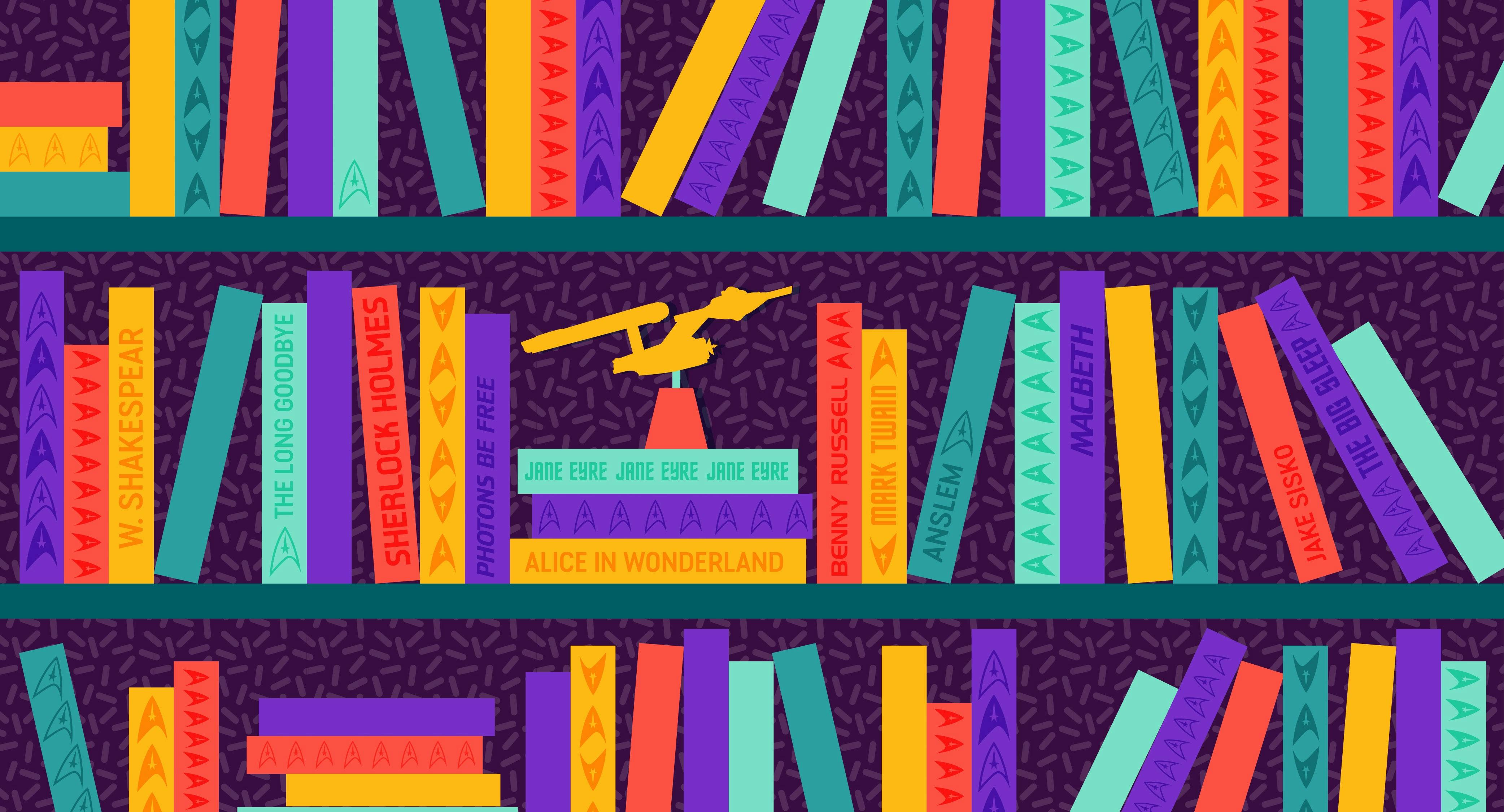
StarTrek.com
As someone who read voraciously as a child and continues to do so today, part of the joy I find in Star Trek comes from its many homages to literature. The Star Trek franchise is saturated in literary references, from episode titles to quotes to reimaginings of classics. Star Trek allows me to see the depth and range of possibilities in classic works by reimagining them in a science fiction setting. And thankfully, with Pulitzer Prize-winning author Michael Chabon as showrunner for the second season of , these literary references are likely to continue.
In celebration of my love of books, here are ten of my favorite literary moments so far.
Data Indubitably Nails It As Sherlock Holmes
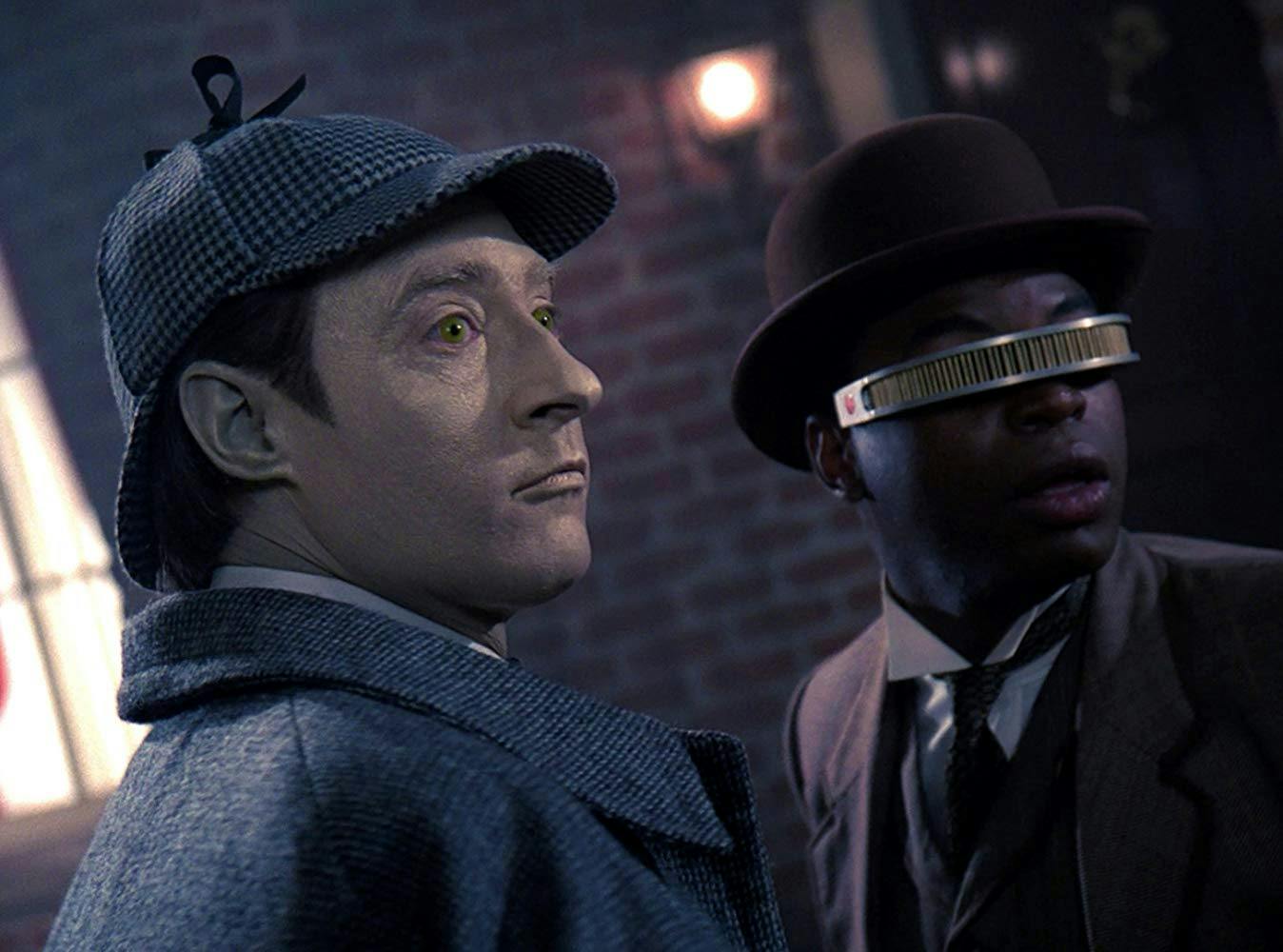
"Elementary, Dear Data"
StarTrek.com
“” () was perhaps my favorite episode as a child, as I was the kind of eight-year-old who read Sherlock Holmes for fun. It’s such a wonderful and clever piece of fanfiction (with lovely costumes and set design to boot), featuring BFFs Data and Geordi along with Dr. Pulaski reenacting the Sherlock Holmes novels on the holodeck. Things go awry when Geordi instructs the computer to come up with a plot that Data won’t be able to solve. Daniel Davis as is in it for the win; that is, until Captain Picard gets involved.
It’s Mark Twain!
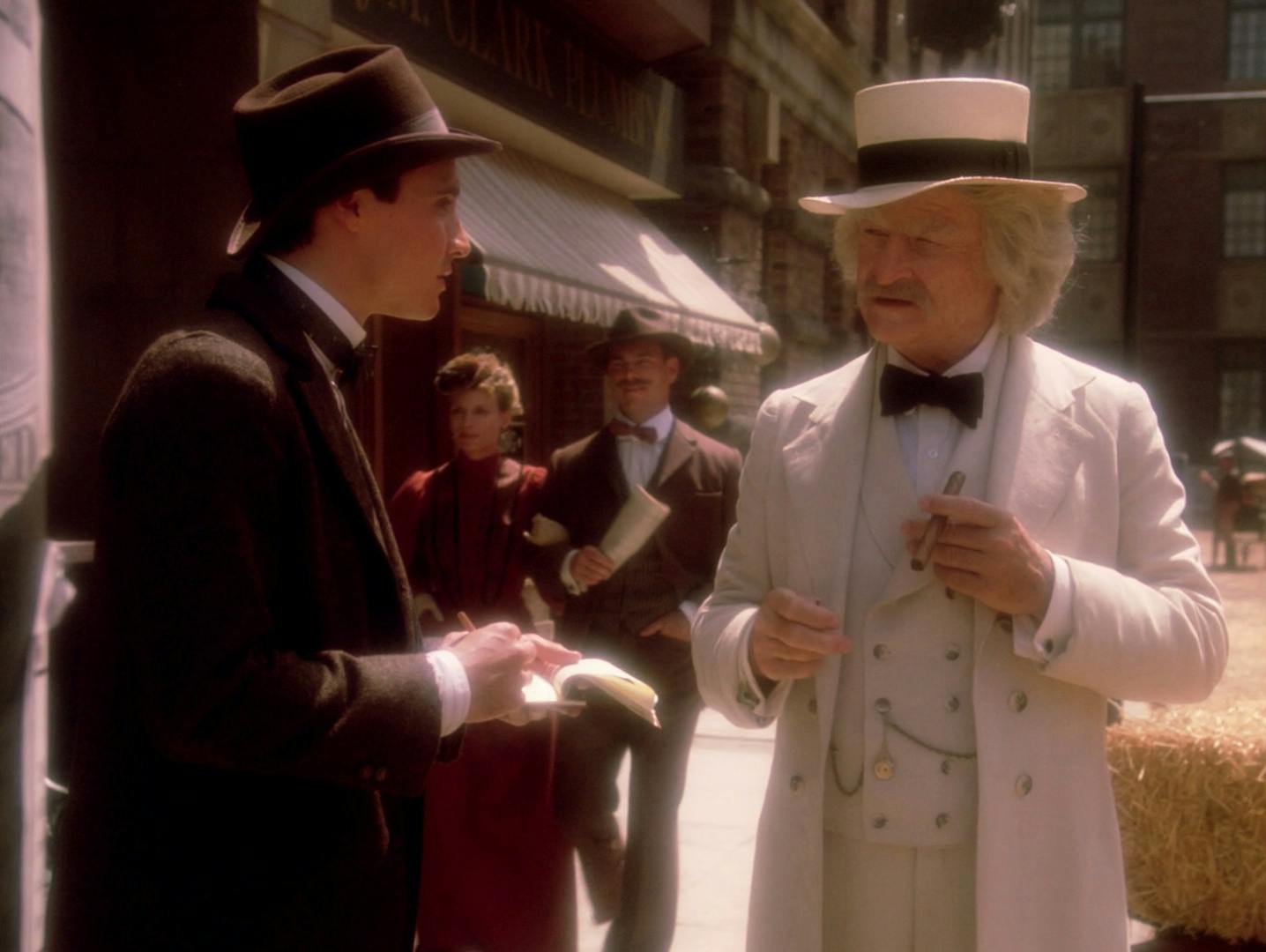
"Time's Arrow, Part II"
StarTrek.com
Your suspicions, Madame Guinan, are undoubtedly based upon your keen observational skills. Ha, ha. Now, if you'll permit me, I'll continue my character assassination unimpeded."
"My dear Mr. Clemens, please do. Please do.
Samuel Clemens and Guinan, "Time's Arrow, Part II"
The Next Generation provides more episodes for book nerds to delight in than any other series. “" Parts I and II gives us Mark Twain aka Samuel Clemens being his typical nosy and inquisitive self, as well as an aspiring writer named Jack London working as a bellhop. I wonder how many people learned that the name Mark Twain is a pseudonym from watching this show? I can still remember the first time I watched this one, curled up on the couch past my bedtime. “” won two Emmy awards.
The Big Sleep + The Long Goodbye = "The Big Goodbye"
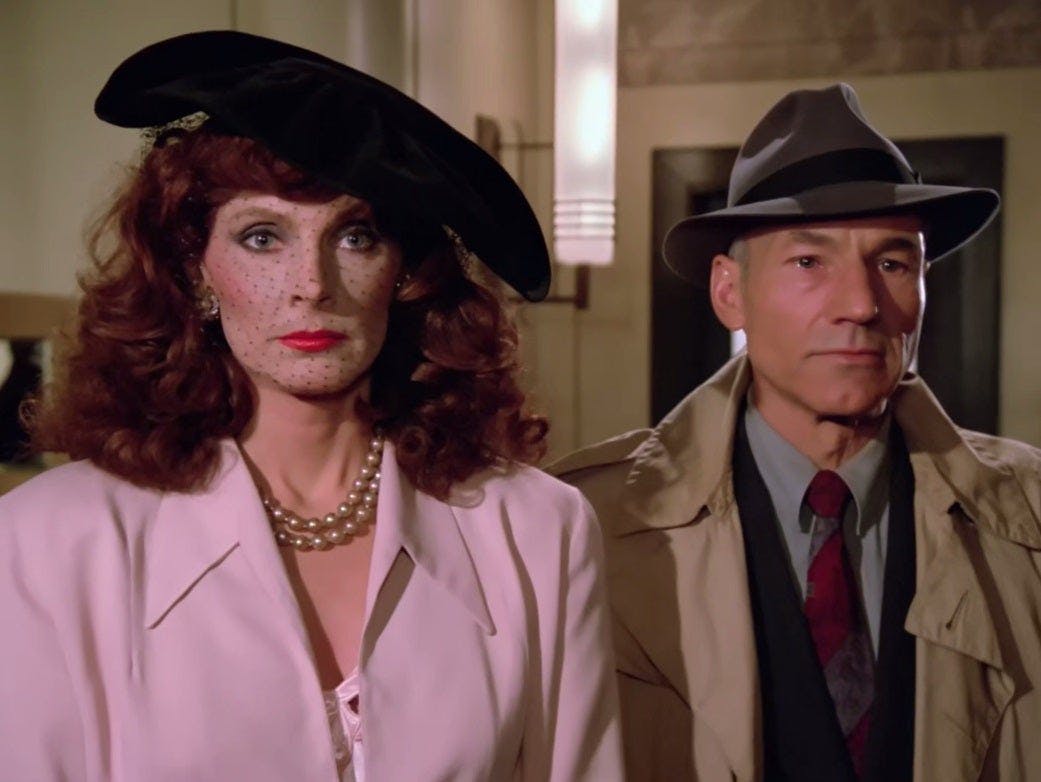
"The Big Goodbye"
StarTrek.com
This will be the last TNG moment on this list, I promise, though there could be many more!
Raymond Chandler was a famous noir writer from the 1940s and '50s. He’s considered the founder of the hard-boiled detective novel, and the title for this episode was created by combining two of his book titles (above). This is the first episode in the Star Trek franchise to take place on the holodeck and is also memorable for its noir setting and fantastic headwear.
Down the Rabbit Hole with Amanda Grayson
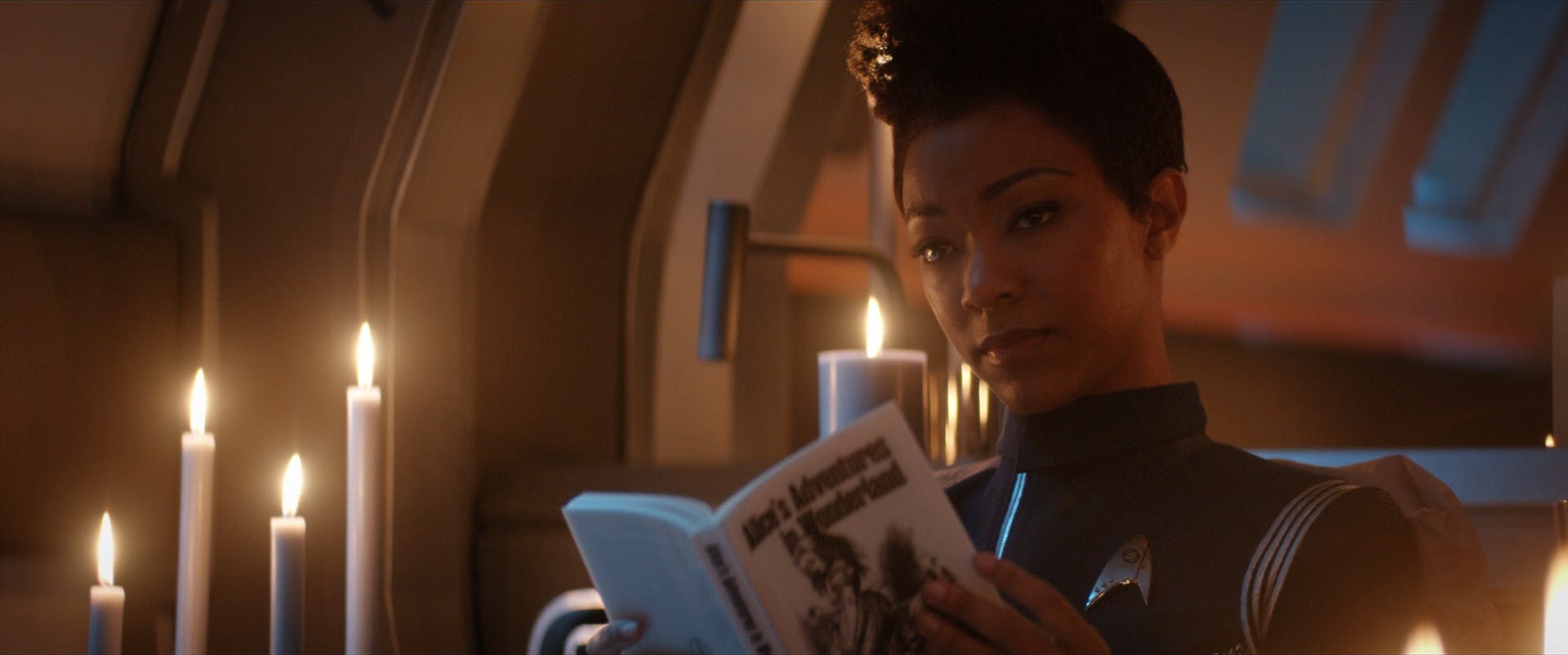
"Brother"
StarTrek.com
Alice's Adventures in Wonderland by Lewis Carroll has a long history of appearances and references in Star Trek, but my favorite moment with the book is in “Brother” () when Amanda Grayson reads the book to child Michael Burnham as she tucks her into bed.
In an after show recap, the writers explained they decided to use the book to demonstrate how Grayson would try to show Spock and Burnham that logic isn’t everything. I also think it’s a good metaphor for how Vulcans, in general, would feel as members of the Federation — like they’d plummeted down the rabbit hole and now nothing makes much sense.
One thing that strikes me about Burnham’s copy of the book is how new it looks. Captain Picard usually reads ancient-looking tomes (which is strange — how have these been preserved so long? Why is he not wearing gloves? They must be replicas), but Burnham’s book looks like Amanda Grayson must’ve purchased it new at a bookstore. (I’d love to see what a bookstore looks like in the Star Trek universe!)
Benny Russell in “Far Beyond the Stars”
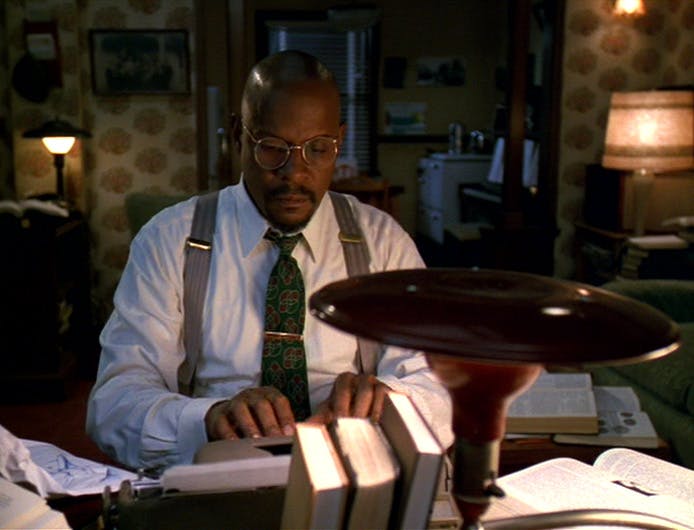
"Far Beyond the Stars"
StarTrek.com
This emotionally-wrenching episode is one of my personal favorites from .
In it, Captain Sisko experiences a vision from the prophets that he’s a science fiction writer named Benny Russell in the 1950s, working on a piece about the first Black captain to command a space station . It’s a powerful episode.
Nana Visitor recalls, in What We Left Behind, that Avery Brooks had trouble coming out of the closing scene as a sobbing Benny Russell, who's just been told that the publishers refuse to publish his story and that he’s fired. The entire episode is a plethora of golden-age SFF references as well as a searing look into racial discrimination in the SFF publishing industry during this time.
Jake Sisko, Award-Winning Author
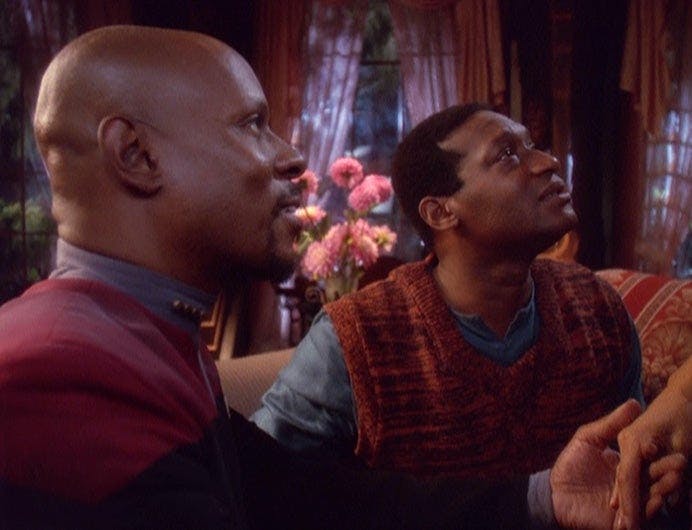
"The Visitor"
StarTrek.com
Jake begins writing his first novel Anslem in “,” under the influence of an energy-sucking and alluring alien, Onaya. At the end of the episode, Jake tells Sisko that he doesn’t feel like the words are his own, but Sisko encourages him to continue writing the novel, assuring him that they are. And in an earlier episode, “,” which takes place in the future, we learn that Jake’s novel has been published and even received an award.
The conversation between Jake and his father reminds me of some of the discussions we had in creative writing and literature classes in my MA program, about whether creativity and drug and/or alcohol abuse go together since so many famous authors were addicts, and since so many great works of art were created under the influence of drugs. I thought the argument moot, but several of my classmates found it interesting. Would Jake have ever written Anslem without Onaya? I think so. We’ll never know for sure.
Captain Janeway is Interrupted from a Holodeck Novel... Again
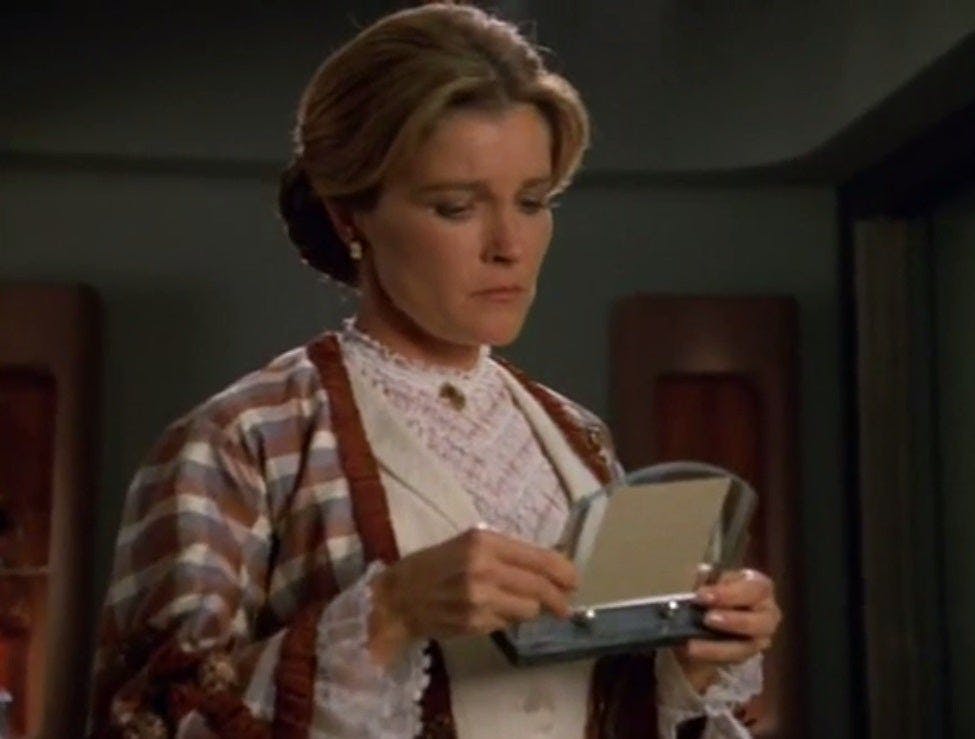
"Persistence of Vision"
StarTrek.com
It’s a stormy night outside the gothic style castle, and Captain Janeway is governess Lucille Davenport seeking employment. She’s exchanging tense words with her future employer and possible love interest when she’s interrupted by a *bup bup bup*
“Captain, there’s a disturbance that requires your immediate attention.” Will she ever finish this Jane Eyre-esque holonovel? She probably doesn’t want to after the maid tries to kill her in "." As a fan of gothic and Victorian novels, I love seeing Captain Janeway join the narrative, and I’m always disappointed when she’s interrupted.
The Doctor As The Holonovelist of Photons Be Free
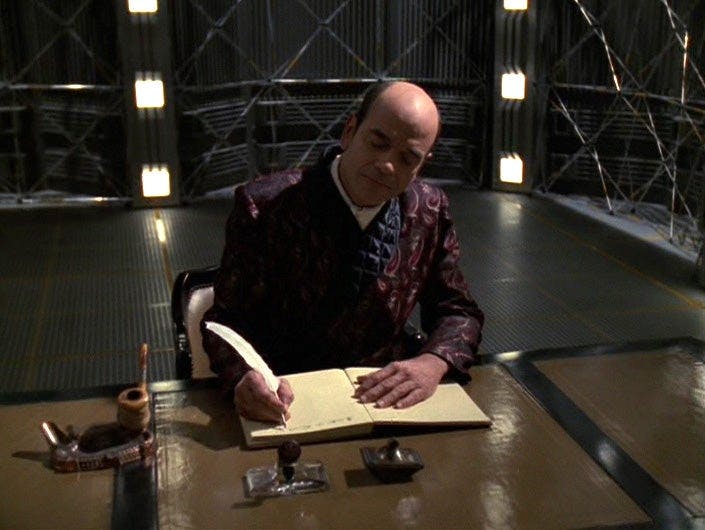
"Author, Author"
StarTrek.com
The episode “” is a pointed commentary on some of the problems writers face. The first problem addressed is the writer’s responsibilities when using versions of real people in their fiction.
In The Doctor’s holonovel Photons Be Free, he created poorly disguised versions of the Voyager crew, and then made them evil. While this was probably a cathartic pursuit for The Doctor, it wasn’t exactly received well by the crew. When an unethical publisher distributes the holonovel without his consent, a trial ensues (reminiscent of Data’s trial in “”) to determine whether The Doctor, as a hologram, has the right to control his creative endeavors. It’s an issue that continues in publishing today to various extents (though unrelated to holograms).
An Homage to Macbeth
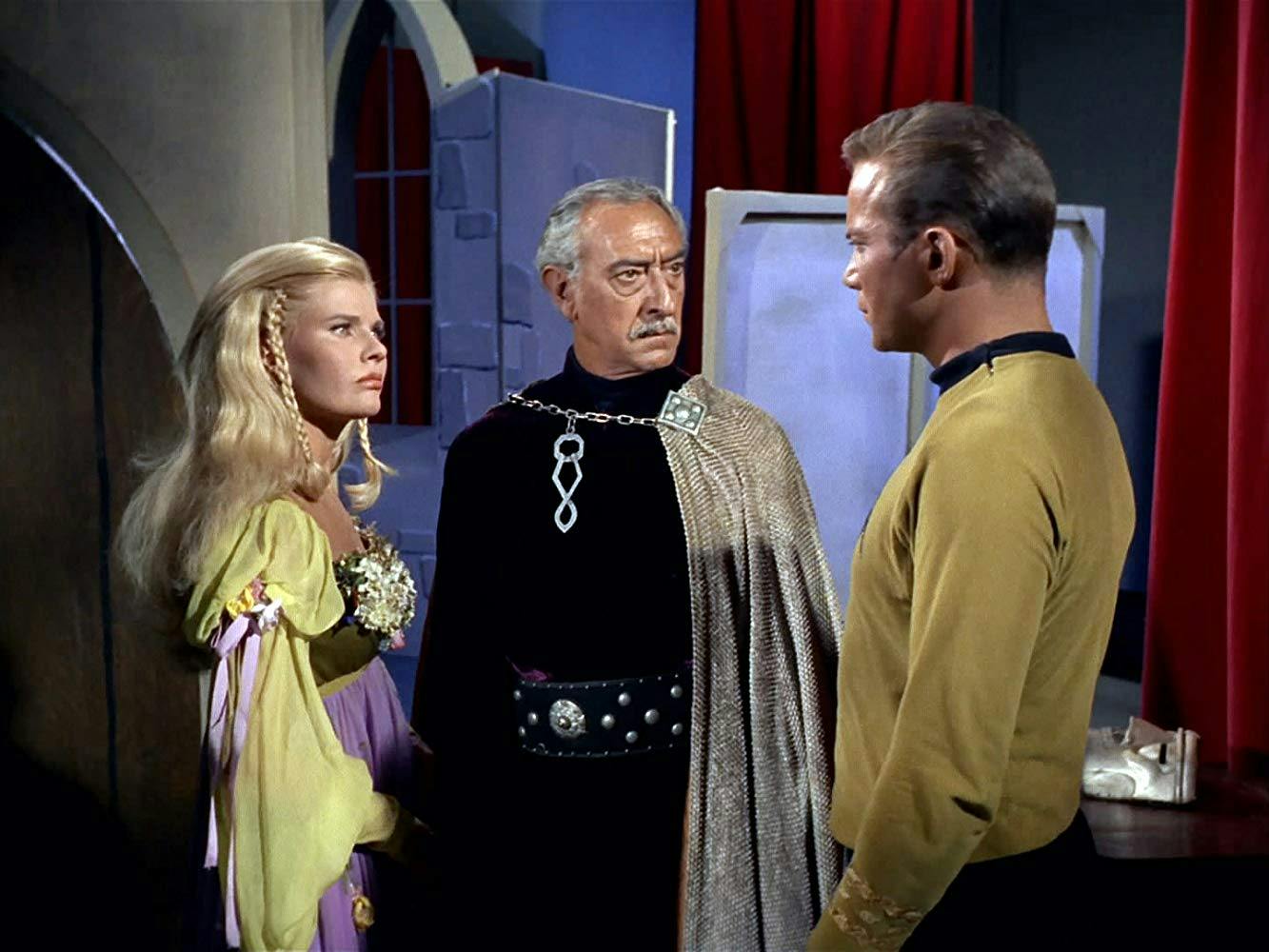
"The Conscience of the King"
StarTrek.com
“” is often listed as one of the most underrated episodes from .
The title comes from Hamlet — “The play's the thing wherein I'll catch the conscience of the King” — though, in the episode, the troupe of traveling actors is performing Macbeth. The episode is full of melodrama, Shakespearean allusions, revenge, and wonderful stage drama. It’s a bit sexist, but Barbara Anderson’s performance of Lenore is the best in the show, and there’s a must-see scene with Nichelle Nichols as Uhura playing the Vulcan harp.
All That Shakespeare
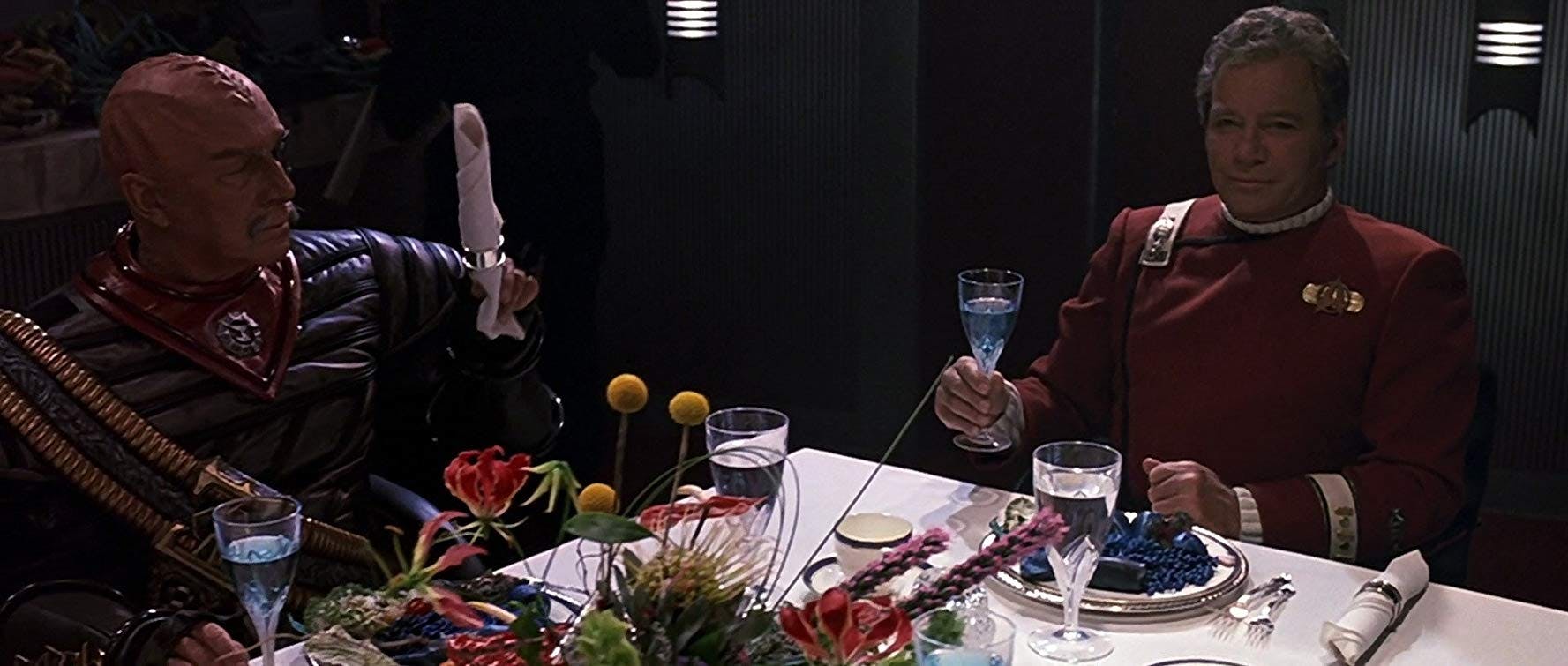
Star Trek VI: The Undiscovered Country
StarTrek.com
William Shakespeare’s canon is easily in the entire franchise. It’s clear Gene Roddenberry was a Shakespeare fan, as are many of the actors. William Shatner, Patrick Stewert, Kate Mulgrew, Avery Brooks, and more have performed on stage in Shakespeare’s plays.
However, my favorite Shakespearean moment occurs in , after Uhura asks General Chang, played by another Shakespearean actor Christopher Plummer, if he’s ever read Shakespeare over a strained dinner party. Therein follows a bevy of tense Shakespearean small talk. Clearly, General Chang is indeed familiar with the bard.
My hope is that in the new Picard series we continue to see Shakespearean references, particularly since Captain Picard is a reader and Shakespeare is his favorite author. I’d also love to see other literary references, including more contemporary ones, and scriptwriters that are also novelists.
One last small request — can we see Picard’s library? I mean, he has to have an amazing library in his French chateau. Surely I’m not the only one who’s thought of this; one can only hope.





